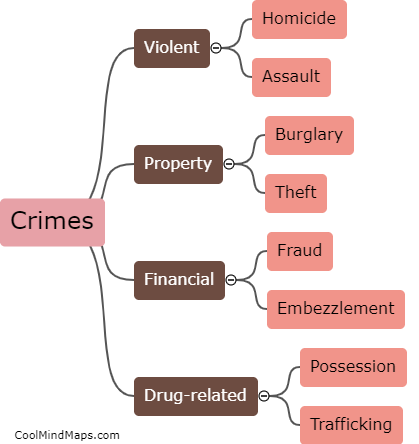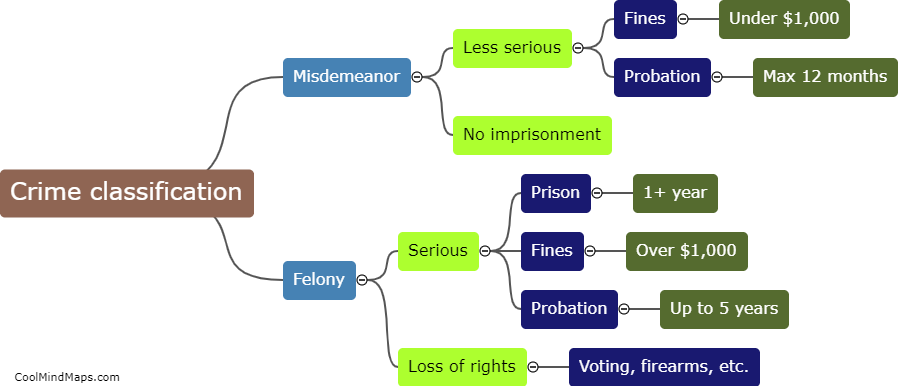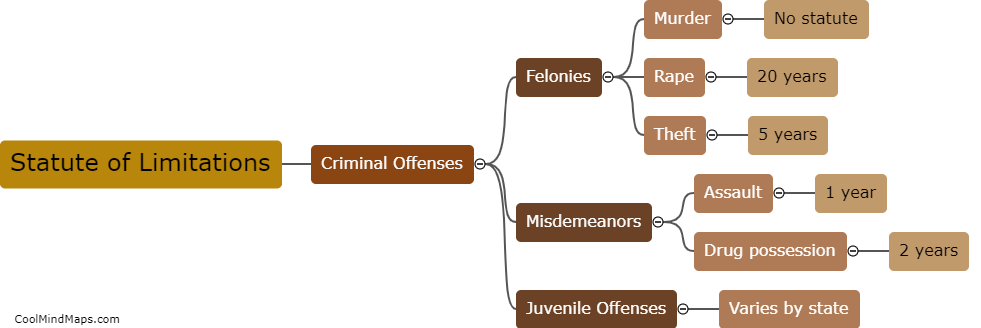What are the rights of the accused?
The rights of the accused in a criminal trial are essential safeguards to protect individuals from unfair treatment or wrongful conviction. These rights are enshrined in the Constitution, such as the right to counsel, the right to a fair and speedy trial, the right against self-incrimination, and the right to confront witnesses. Additionally, the accused has the right to remain silent and cannot be compelled to testify against themselves. The presumption of innocence until proven guilty is also a crucial right that protects the accused from arbitrary or baseless accusations. Overall, these rights ensure that the accused receive a fair and just trial.

This mind map was published on 18 April 2023 and has been viewed 99 times.











